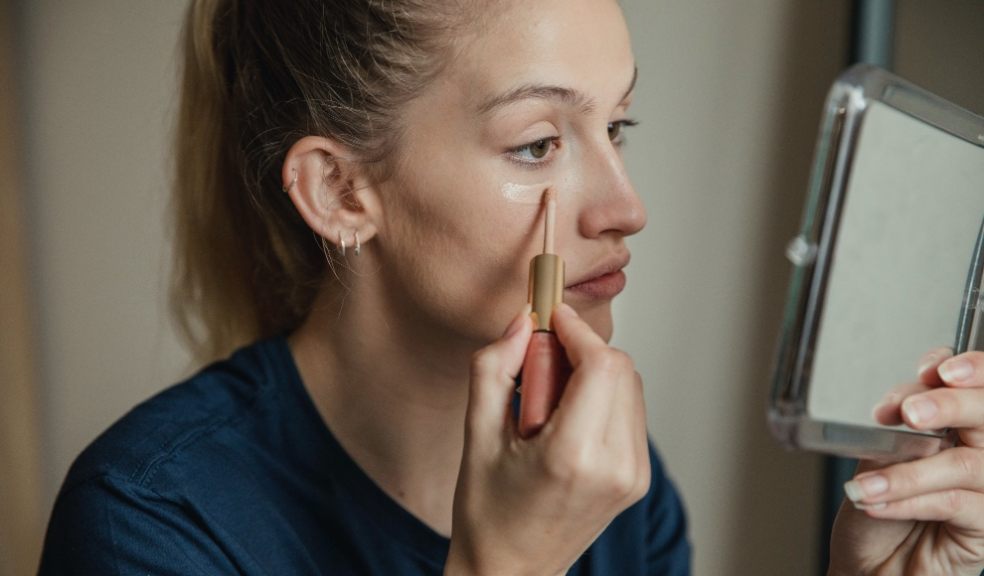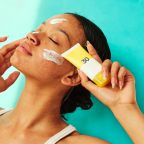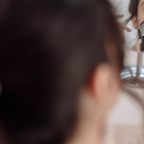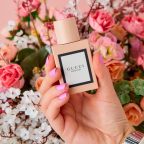
This is what a week without make-up does to your skin
On most days, I’ll wear make-up. By beauty influencer standards, it’s not a lot, but while I don’t spend hours applying layers of foundation and contouring (I much prefer the ‘no make-up-make-up’ look), I do have a few insecurities that I like to keep in check with a swipe of a concealer stick.
But like most people I know, the spread of coronavirus has thrown my beauty regime into a total chaos.
I haven’t applied foundation to any breakout areas in weeks, my brows have been left unplucked and I can’t remember the last time I wore mascara. In fact, my make-up bag has been gathering dust since going into lockdown.
With nothing in my schedule save for a daily 20 minute walk around the local park, I’ve used this time to give my skin a break. I’ve even braced work video calls with a freshly washed face.
While it’s definitely been a big leap for my own confidence, I’m curious to know whether ditching my daily face of make-up has benefited my complexion in the long-run. So I asked a handful of top dermatologists and skin experts to explain what a week without make-up can do for your skin.
Firstly, is wearing make-up actually bad for your skin?
“Make-up is not necessarily ‘bad’ for the skin, and most people wear make-up without any trouble at all,” says Dr Daron Seukeran, medical director at skincare clinic Sk:n. “However, some people can develop sensitivities to certain ingredients found in make-up.”
Seukeran, says that there are lots of different preservatives and other ingredients that can cause irritation or contact dermatitis in certain people. For instance, he says that fragrance is the second most common allergen in the UK.
“Dermatologists will sometimes patch test someone who is having recurrent problems with make-up, to check if they’re having allergies. However the majority of people will not have a problem with wearing make-up during the daytime.”
The problem starts when you forget to remove your make-up before you fall asleep at night. When this happens, you run the chances of letting the bacteria, oil and sebum build up on the skin surface and cause a breakout.
“Make-up can clog pores and when it’s not removed properly with a cleansing routine, it can build up and create blackheads and spots,” says Chris Luckham, skin specialist at Foreo.
What kinds of skin issues can regularly wearing make-up cause?
“Wearing make-up regularly and re-using the same brushes each day can block your pores and introduce bacteria onto your face, which often leads to small rash-like bumpy pimples,” says from Dr Ophelia Veraitch, consultant dermatologist at The Cranley Clinic on Harley Street.
Veraitch says that it’s a common misconception is that the make-up physically blocks the pore – the block is actually made of dead skin cells.
“Irritant dermatitis accounts for the majority of reactions to make-up and other cosmetic products. It can occur in anyone, but is more likely in those with pre-existing sensitive skin or in those with underlying barrier disruption caused by a condition like eczema or rosacea.”
It typically causes an itchy, scaly red rash but can even blister or weep and while Veraitch says that symptoms can occur immediately, it may take weeks or even months to develop with weaker irritants, making it difficult to identify the cause.
What happens to the skin when we give it a long break from make-up?
“People who stop wearing make-up, especially if the make-up they were wearing was occlusive or comedogenic [leading to blackheads], tend to notice that their skin looks a lot better after a week,” says Veraitch.
“A barrier of make-up can make your skin produce more oil, which can lead to breakouts, because there’s a better chance for pores to be blocked over the span of a week.”
That being said, if your skin is still giving you trouble after a week of cold turkey (and you’re tempted to crack out the foundation before you open the door for a supermarket delivery), try giving it a little more time to settle.
“A skin cycle is typically around 28 days. The longer your skin can go without make-up, the better it will regulate your skin’s temperature, oil control, hydration, and its natural exfoliation process,” says Veraitch.
What skincare tips would you recommend to support your skin while you’re laying off the make-up?
“I swear by vitamin C creams in the morning, as it naturally helps to boost your glow” says Luckham.
“Ingredients like niacinamide or peptides are also good for their skin illuminating, calming and revitalising properties too,” he adds.
Meanwhile, Veraitch stresses that while we’re all spending more time indoors, it’s still important to implement a thorough cleansing routine each evening. When it comes to removing the day, there’s one method that she suggests your steer clear of.
“I would always advise against using face wipes,” she says. “Essentially, they just move dirt and oil around on the face. The skin around your eyes is extremely delicate, so the rubbing motion alone will drag the skin and could cause premature ageing and pigmentation.”
Finally, she adds: “Use a broad-spectrum SPF throughout the day to protect your skin from damaging sun exposure and, as always, drink plenty of water.”
Image: Getty Images/iStockphoto













